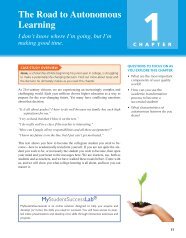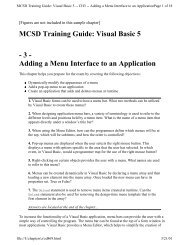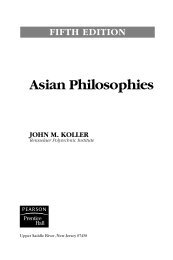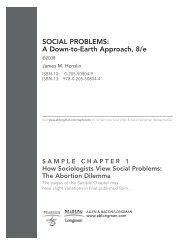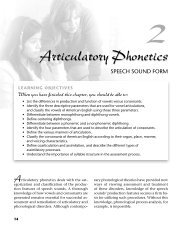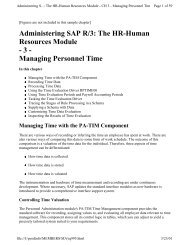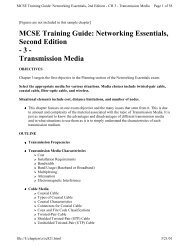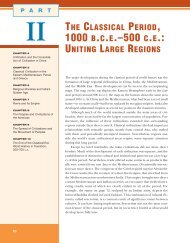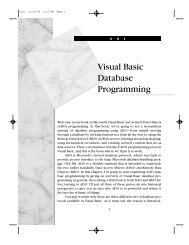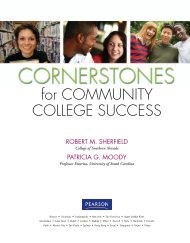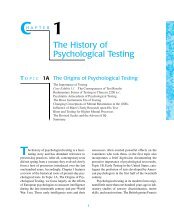CULTURE, language, AND COGNITION
CULTURE, language, AND COGNITION
CULTURE, language, AND COGNITION
You also want an ePaper? Increase the reach of your titles
YUMPU automatically turns print PDFs into web optimized ePapers that Google loves.
GA305c05.qxd 4/30/2004 11:26 AM Page 118<br />
118 culture, Language, and cognition<br />
cognitive development that cuts across many domains or that takes place<br />
in everyday life—then classical Piagetian theory will certainly need some<br />
additions” (pp. 277–278). This, of course, is a position with which we certainly<br />
agree and which we encourage other researchers to take into account<br />
when conducting future cross-cultural studies of cognition.<br />
Analytic Thinking and Problem-Solving<br />
Most of the research in cross-cultural human development has emphasized<br />
cognitive growth in childhood and adolescence. By comparison, few crosscultural<br />
studies have examined cognitive development in adulthood. Piaget<br />
believed that formal operational thinking represented the highest level of<br />
cognitive development and proposed no additional stages in adulthood. He<br />
believed that an adolescent and an adult would think in the same way. However,<br />
some developmental psychologists have challenged this belief, arguing<br />
for a post-formal stage of cognitive development in adulthood. For example,<br />
Labouvie-Vief (1986) has suggested that in early adulthood, a change in<br />
thinking occurs in which individuals begin to recognize cognitive limitations<br />
and may adapt their thinking to the demands of their environment. This<br />
process is called adaptive logic and involves balancing critical analyses of objective<br />
observations with one’s subjective reactions to these observations. For example,<br />
when performing a memory task, older subjects may make a conscious decision<br />
to exclude much of the detailed information they remember, believing it<br />
may be uninteresting to the researcher or to other listeners. If this is the case,<br />
Salthouse (1987) suggests that when measuring cognitive abilities of middleaged<br />
adults, we need to employ strategies different than those used with<br />
young adults (e.g., experience and expertise). This represents one more challenge<br />
for researchers interested in the study of cognitive development.<br />
According to some theorists the highest level of post-formal cognition is<br />
what is called dialectical thinking. Dialectical thinking suggests that for every<br />
viewpoint there is an opposing viewpoint and these two can be considered simultaneously.<br />
The ability to synthesize and deal with such opposing ideas represents a<br />
new level of cognitive flexibility and a deepening of thought, which, in turn,<br />
facilitates developmental growth.<br />
�� Middle and Later Adulthood<br />
As one gets older, one supposedly gets wiser. At middle age and late adulthood,<br />
one has greater experience, becomes more sensitive to inconsistencies,<br />
and responds differently to social, political, and economic changes. These are<br />
generally the years of greatest productivity and self-satisfaction in career, avocation,<br />
or family.



